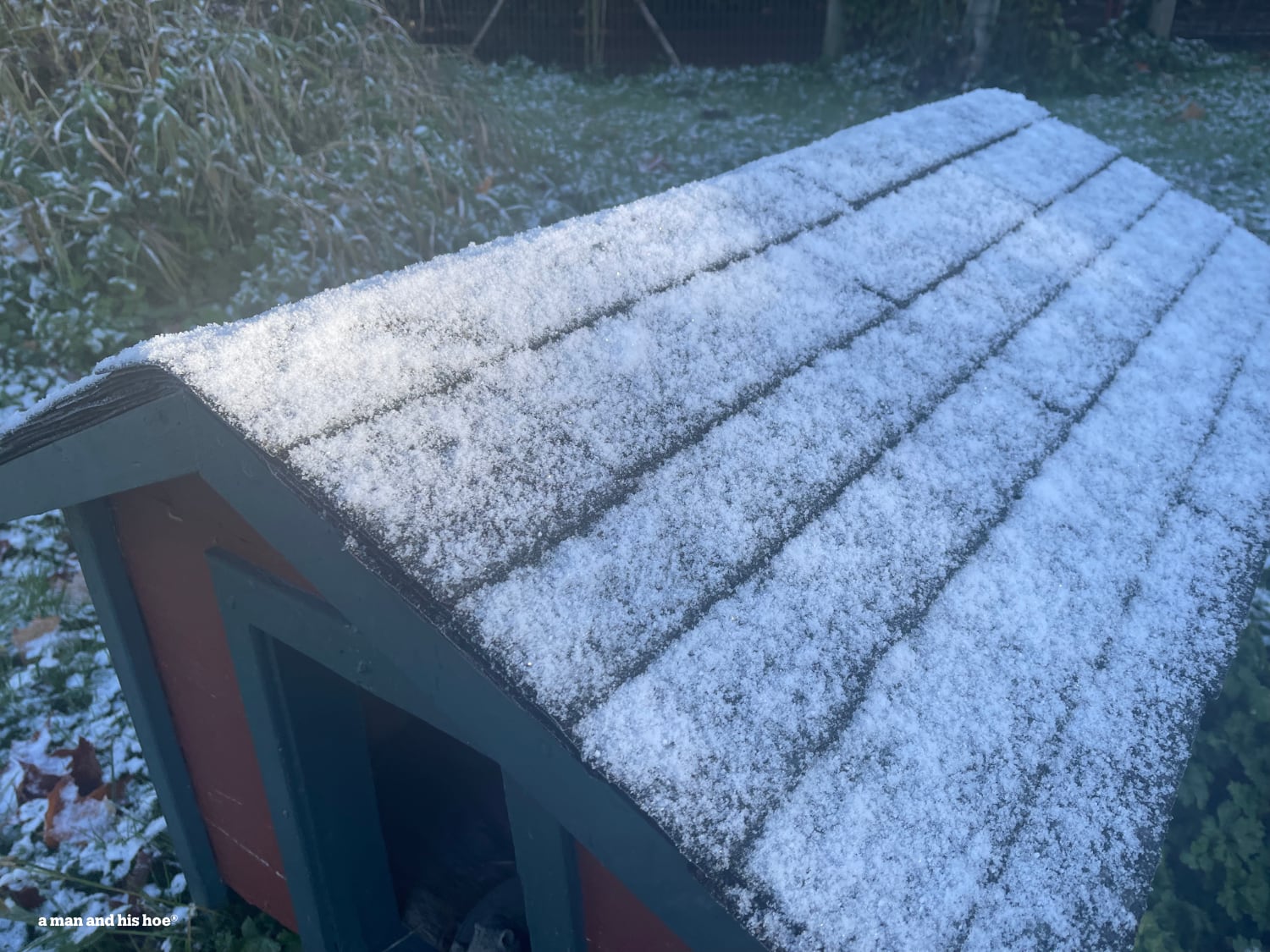Your cart is currently empty!
First Frost of the Season
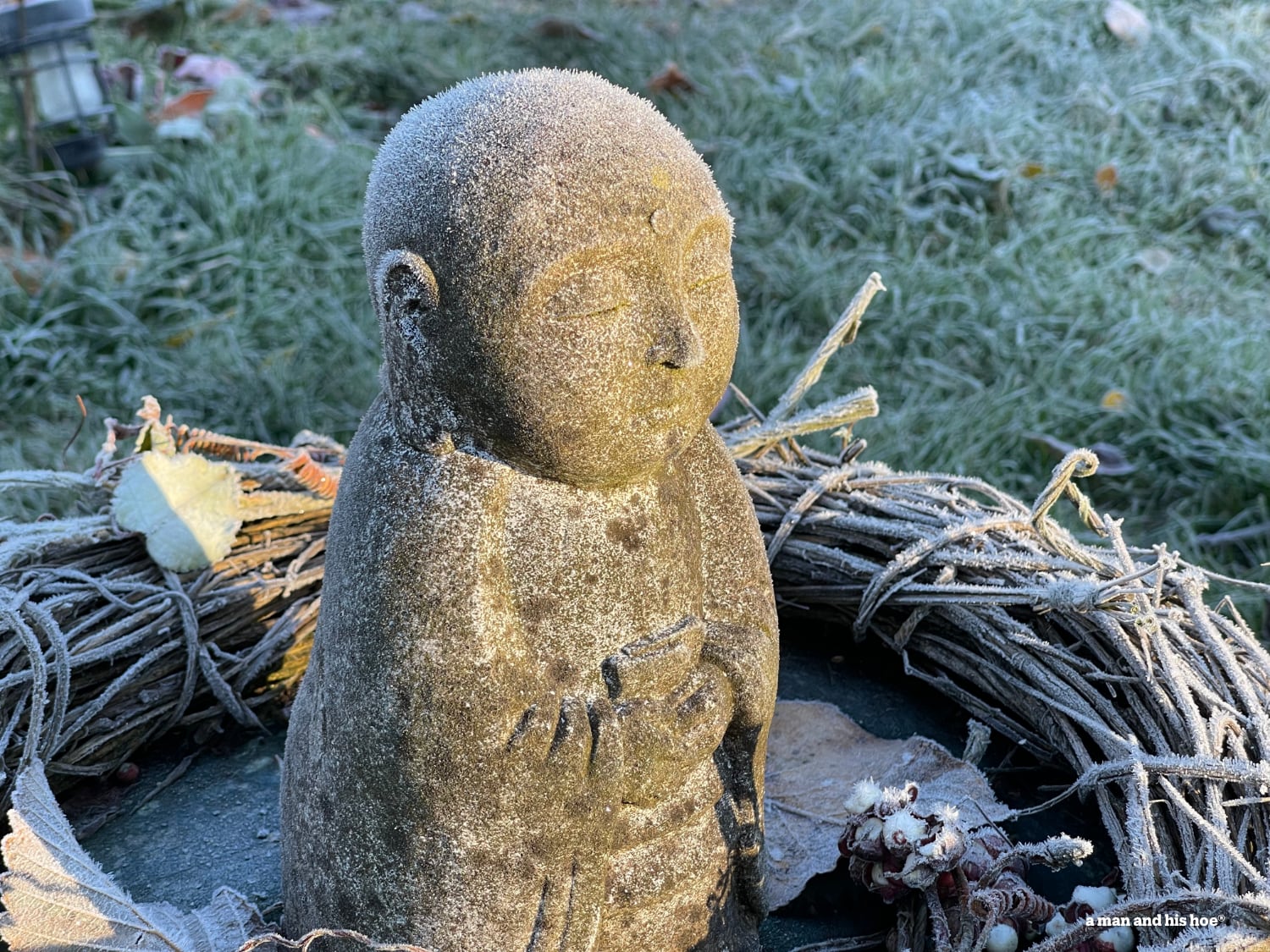
The first frost of the season gave the little Buddha a frosty white head. This year was odd because we had our first snow of the season the night of the 7th, before our first frost. The sun melted the snow yesterday, and this morning our first frost prickled the leaves and the head of this patient Buddha.
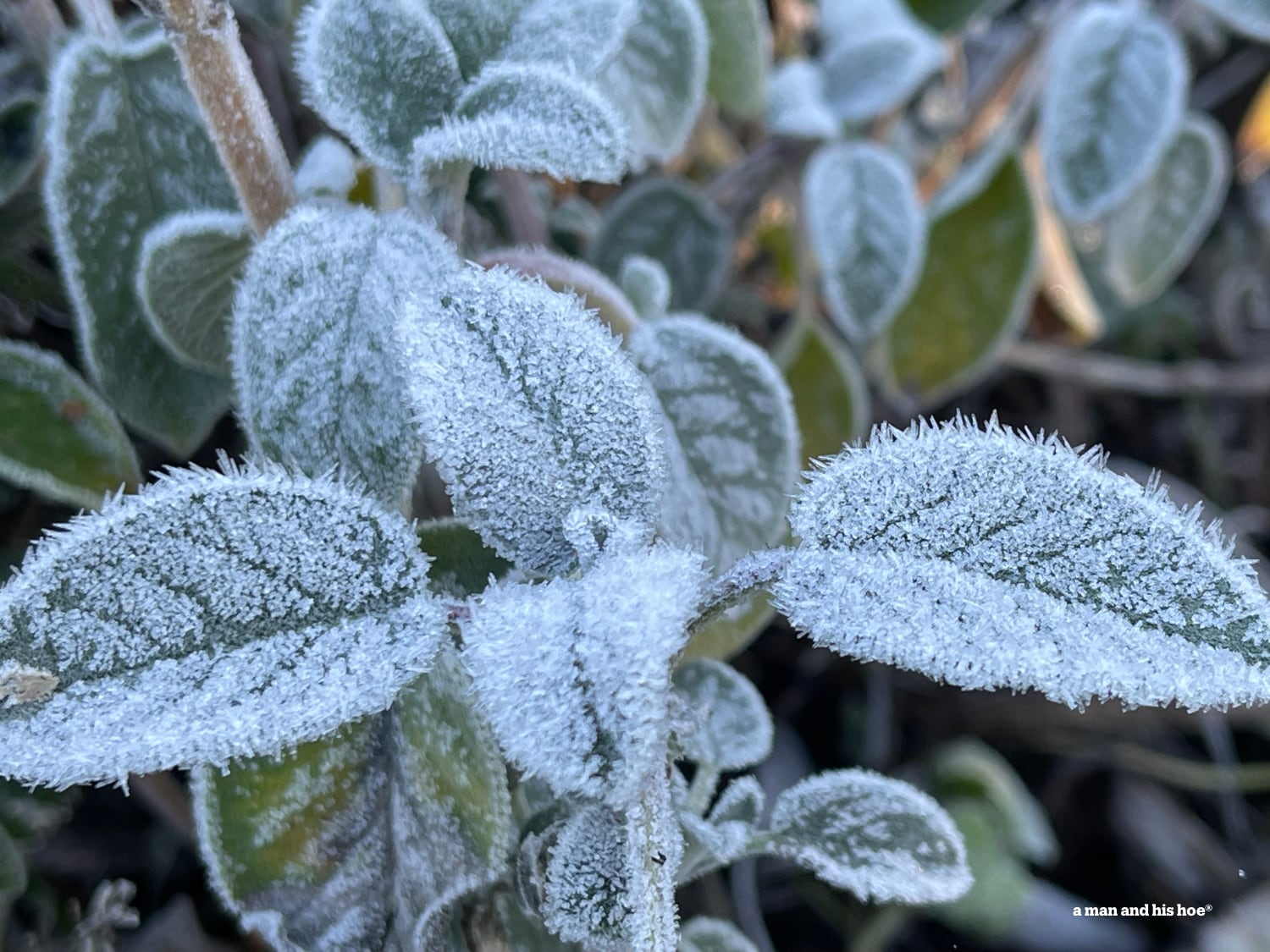
It feels like winter. According to the traditional Chinese solar term calendar, yesterday was the start of winter, the 19th of the 24 solar terms in a year. 立冬, which translates to “winter standing up.” I can go along with that.
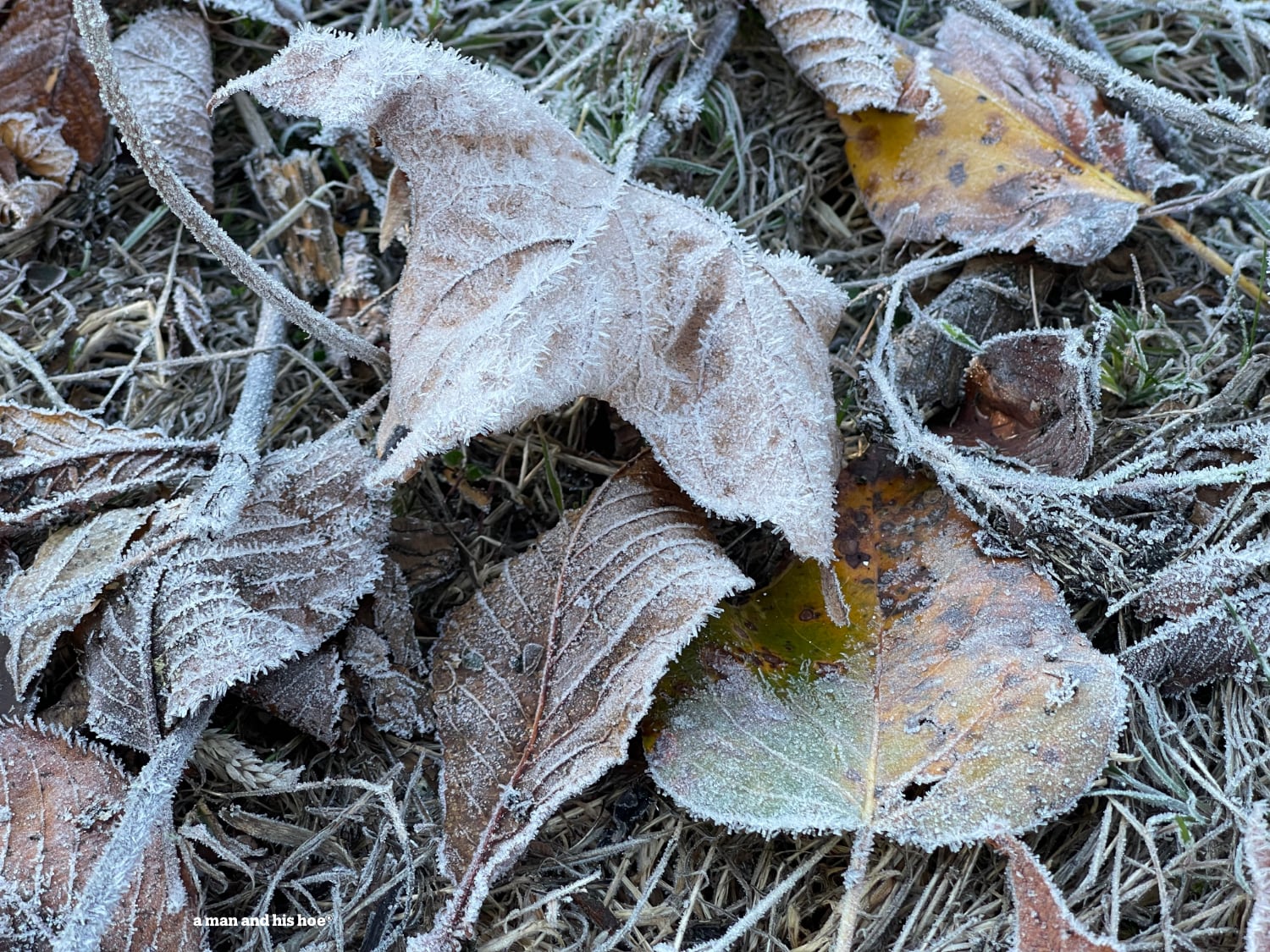
The rains have lifted. The rivers dropped. And the vast lake of a few days ago where the swans swam is a green field again. Here one day. Gone the next. Nothing stays the same.
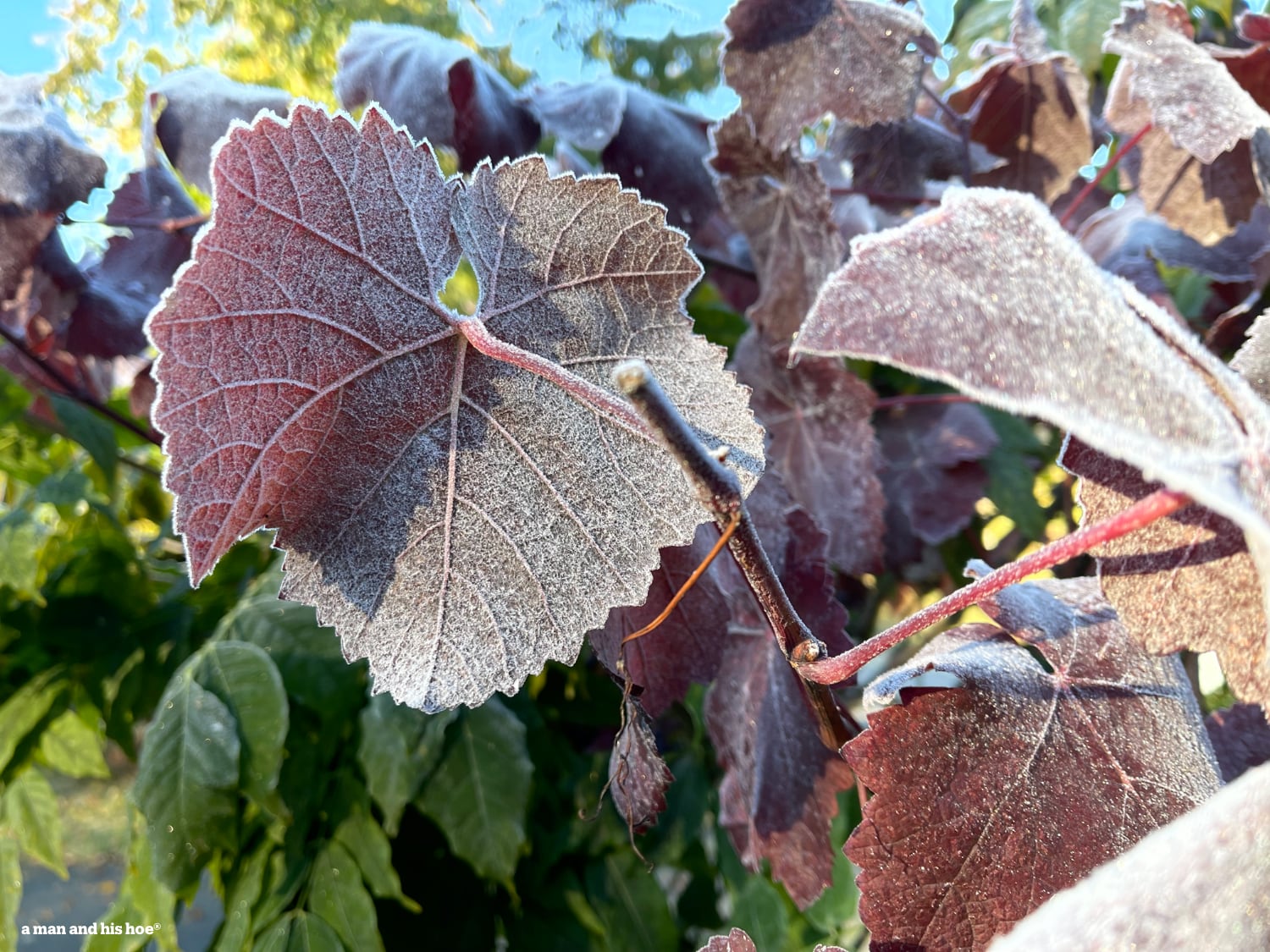
Even this morning’s frost is quickly fading. And by noon it will be all gone.
I’ve been reading The Song of the Cell by Siddhartha Mukherjee. It’s a fascinating read on what we know of the cells that make plants and animals. What interests me is how little people from just a hundred or two hundred years knew how life really works. Even now, there is so much that scientists don’t know how cells work.
Which makes me wonder why we pay any attention to what the ancients thought. They had no understanding of how the human body worked. It was less than 400 years ago, in 1628, that physiologist, William Harvey, described the heart as a pump that circulated blood through the body.
Think about that. People before William Harvey published his research in 1628, had no idea that the heart pumped blood through the body with one pump, and through the lungs with another pump. Round and round and round. And when he did publish his work, there were eminent researchers who scoffed at his ideas.
And it’s been less than a hundred years since scientists discovered that the pancreas made insulin! Prior to 1642, scientists considered the pancreas to be a cushion that protected the stomach. But in 1642 two anatomists discovered that there was duct inside the pancreas and realized that a pancreas was more than a cushion because a cushion would have no need for a duct inside it. But it wasn’t until the 1920’s that scientists discovered that the pancreas made insulin.
So why do we bother to take seriously the thoughts and ideas of the ancients who knew less about how the universe and life works than grade schoolers of today? Would you take seriously anyone who doesn’t know that the heart pumps blood through the body? Or who doesn’t know that the earth revolves around the sun?
